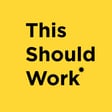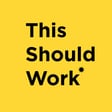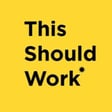
TSW* S1E8 - Patrick Murphy - University of Alabama at Birmingham
In this episode of "This Should Work", host Jay Margalus sits down with Dr. Patrick Murphy, a distinguished figure in entrepreneurship education and research. As the Goodrich Chair of the J. Frank Barefield Jr. Entrepreneurship Program at UAB, Dr. Murphy shares insights from his transition from DePaul University and his unique approach to entrepreneurship education.
The conversation delves into Murphy's influential work in social entrepreneurship, exploring how this field has evolved since his highly-cited paper on social entrepreneurial discovery. Drawing from his international experience, including time spent in Beijing, Murphy offers a global perspective on entrepreneurship.
Throughout the episode, Murphy addresses critical issues in entrepreneurship, including:
- Building sustainable entreprepenruship programs and businesses
- Common pitfalls for new entrepreneurs and how to avoid them
- The importance of mentorship and building strong company cultures
- The future of entrepreneurship education and the role of technology
Murphy also shares his insights on the evolving entrepreneurial ecosystem and highlights crucial areas for future research in the field. This wide-ranging conversation offers valuable takeaways for aspiring entrepreneurs, seasoned business owners, and anyone interested in the cutting edge of entrepreneurship theory and practice.


